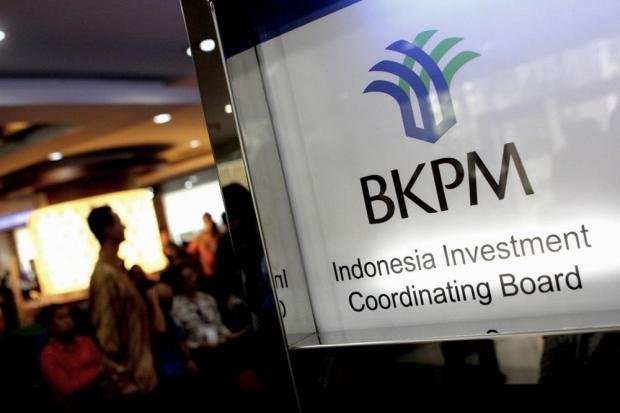
Virtual offices have become a popular solution for businesses that want a professional image without the cost of a physical office. Indonesia is no exception, and virtual offices are increasingly being used by businesses of all sizes in the country.
A virtual office in Indonesia provides companies with a prestigious business address and telephone number, as well as administrative support services such as mail handling and call forwarding. This means that companies can have a professional image, even if they don’t have a physical office space.
How does a virtual office in Indonesia work?
A virtual office in Indonesia provides businesses with a professional mailing address and telephone answering services, without the need for a physical office space. The virtual office service provider receives mail and packages on behalf of the business, and can forward them to a designated address, or hold them for pickup. The telephone answering service typically involves a dedicated receptionist who answers calls in the name of the business and takes messages, which can be forwarded to the business owner. This allows businesses to maintain a professional image and establish a local presence in Indonesia, without the expense and hassle of setting up a physical office.
Are virtual offices legal?
Yes, virtual offices are legal in Indonesia. The Indonesian government recognizes the use of virtual offices as a legitimate business model and has established regulations for their operation. Businesses are required to comply with local laws and regulations regarding business registration, taxes, and other relevant requirements, just like any other business operating in Indonesia. It is important to use a reputable virtual office service provider and to ensure that the business is in compliance with all applicable laws and regulations.
In Indonesia, virtual offices are legal and regulated by the Ministry of Law and Human Rights. The use of virtual offices is governed by Indonesian Law No. 40 of 2007 on Limited Liability Companies and its implementing regulations, as well as other relevant laws and regulations.
According to these laws and regulations, virtual offices must be registered with the government and meet certain requirements, such as having a valid business license and a local tax identification number (NPWP). Additionally, virtual office providers must maintain accurate records of all business activities and transactions, and must comply with all relevant regulations related to data protection, privacy, and security.
It’s important to note that while virtual offices are legal in Indonesia, certain types of businesses may be required to have a physical office presence in order to comply with regulations and obtain the necessary licenses and permits. Before setting up a virtual office in Indonesia, it is recommended to consult with a legal expert to ensure compliance with all relevant laws and regulations.
Virtual office vs physical office
A virtual office and a physical office both have their own advantages and disadvantages, and the choice between the two will depend on the specific needs of a business. Here are some of the key differences and benefits between virtual offices and physical offices:
Virtual Offices:
- Cost-effective alternative to traditional physical office spaces
- Provide a professional mailing address and telephone answering service
- Offer flexibility and the ability to have a presence in multiple locations
- Reduce overhead costs and increase profitability
- Save time by reducing administrative tasks and freeing up employees to focus on core business activities
Physical Offices:
- Provide a physical space for employees to work in
- Offer opportunities for face-to-face interaction with clients and partners
- Offer more control over mail and packages
- Are less dependent on technology and less prone to communication problems
- May be viewed as more credible and professional by clients and partners
Ultimately, the choice between a virtual office and a physical office will depend on the specific needs of the business and the industry in which it operates. Some businesses may benefit from the cost savings and flexibility offered by virtual offices, while others may require the credibility and control provided by a physical office
Read More: Starting a Business in Bali: Essential Guide
Are there companies that have to use physical office spaces?
In Indonesia, there are certain types of businesses that are required to have a physical office presence. These include:
- Financial Institutions: Banks, insurance companies, and other financial institutions are required to have a physical office presence, as they need to store and manage confidential client information and transactions.
- Healthcare Institutions: Healthcare institutions such as hospitals and clinics are required to have a physical location, as they provide medical services to patients.
- Retail Businesses: Retail businesses such as shops, supermarkets and e-commerce must have a physical location in order to sell goods to customers.
- Manufacturing Businesses: Manufacturing businesses that produce goods must have a physical location, as they need to store raw materials, manufacture products, and store finished goods.
- Food and Beverage Businesses: Food and beverage businesses such as restaurants and cafes must have a physical location in order to serve customers.
- Construction and Engineering Businesses: Construction and engineering businesses must have a physical location, as they need to store equipment and materials, and provide a base for workers to operate from.
- Tourism companies: If the tourism company operates as a tour operator, it may be required to have a physical office location in order to store equipment, manage operations, and provide customer support. However, if the tourism company operates primarily as an online travel agency, it may be able to operate using a virtual office setup.
- Transport companies: Transport companies in Indonesia may or may not be required to have a physical office presence, depending on the nature and scale of the business. For example, if the transport company operates as a taxi or ride-hailing service, it may be required to have a physical office location in order to store and manage vehicles, provide customer support, and manage operations. On the other hand, if the transport company operates primarily as an online platform, it may be able to operate using a virtual office setup.
It’s important to note that these are general guidelines, and the specific requirements for each type of business may vary based on the size and scale of the business, as well as the laws and regulations in the relevant jurisdiction. Before starting a business in Indonesia, it is recommended to consult with a legal expert to ensure compliance with all relevant laws and regulations.
Things to consider when choosing a virtual office
When choosing a virtual office in Indonesia, there are several factors to consider to ensure that you select the right provider for your business needs.
Firstly, it’s essential to determine the location that best suits your business operations, as some virtual office providers may offer specific services that are only available in certain areas. Additionally, you should evaluate the provider’s reputation, experience, and customer service to ensure they can deliver the level of professionalism and quality you require. You should also consider the services included in your virtual office package, such as mail handling, call answering, and meeting room availability, as well as the flexibility and pricing of the package.
Finally, it’s important to review the virtual office provider’s contract terms and conditions, including cancellation policies, billing processes, and any hidden costs, to ensure you fully understand what you are committing to. By considering these factors and conducting thorough research, you can choose the right virtual office provider in Indonesia to meet your business needs and support your professional image.
The cost of having a virtual office vs a physical office in Indonesia
The cost of having a virtual office versus a physical office in Indonesia can vary widely depending on several factors, such as the location, size, and type of office space, as well as the services and amenities provided. Here are some general cost considerations for each option:
Virtual Office:
- The monthly cost for a basic virtual office in a prime location in Jakarta or other major cities in Indonesia can range from IDR 500,000 to IDR 2,500,000 or more depending on the provider and services included.
- Additional services, such as mail handling, call forwarding, and administrative support, may come at an extra cost.
- There may be additional charges for using meeting rooms or conference facilities on an hourly or daily basis.
Physical Office:
- The cost of renting a physical office space in a prime location in Jakarta or other major cities in Indonesia can vary widely depending on the size, location, and amenities included.
- Generally, basic office space in a prime location can range from IDR 3,000,000 to IDR 20,000,000 per month or more.
- Additional costs may include utility bills, internet, and phone services, as well as furniture and equipment.
- Security deposits and other fees may also be required.
In short, a virtual office can be a cost-effective option for small businesses and startups that need a professional business address and access to essential office services without the high overhead costs of a physical office. However, a physical office may be necessary for larger businesses or those that require a more dedicated workspace. Ultimately, the cost of each option will depend on the specific needs of the business and the location and services required.
Read More: How a Foreign Open Company in Indonesia?
How to get started with a virtual office in Indonesia?
Getting started with a virtual office in Indonesia can be a cost-effective and practical solution for businesses looking to establish a professional business presence without the high overhead costs of a physical office. To get started, businesses should determine their needs and budget for a virtual office, research and compare virtual office providers in their desired location, choose a provider that meets their needs and budget, provide necessary documentation and information, customize their virtual office package, and start using their virtual office address and services for official business purposes. By following these steps and paying the monthly fee on time, businesses can enjoy the benefits of a professional business address and essential office services for their company.
Start your business in Indonesia with our virtual office service in Bali and Jakarta!
Ready to establish a professional business presence in Indonesia without the high costs of a physical office? Consider our virtual office service in Bali and Jakarta! With a virtual office, you can enjoy the benefits of a professional business address and essential office services, all at an affordable monthly fee. Contact us today at [email protected] to learn more and start enjoying the benefits of a virtual office for your business

















